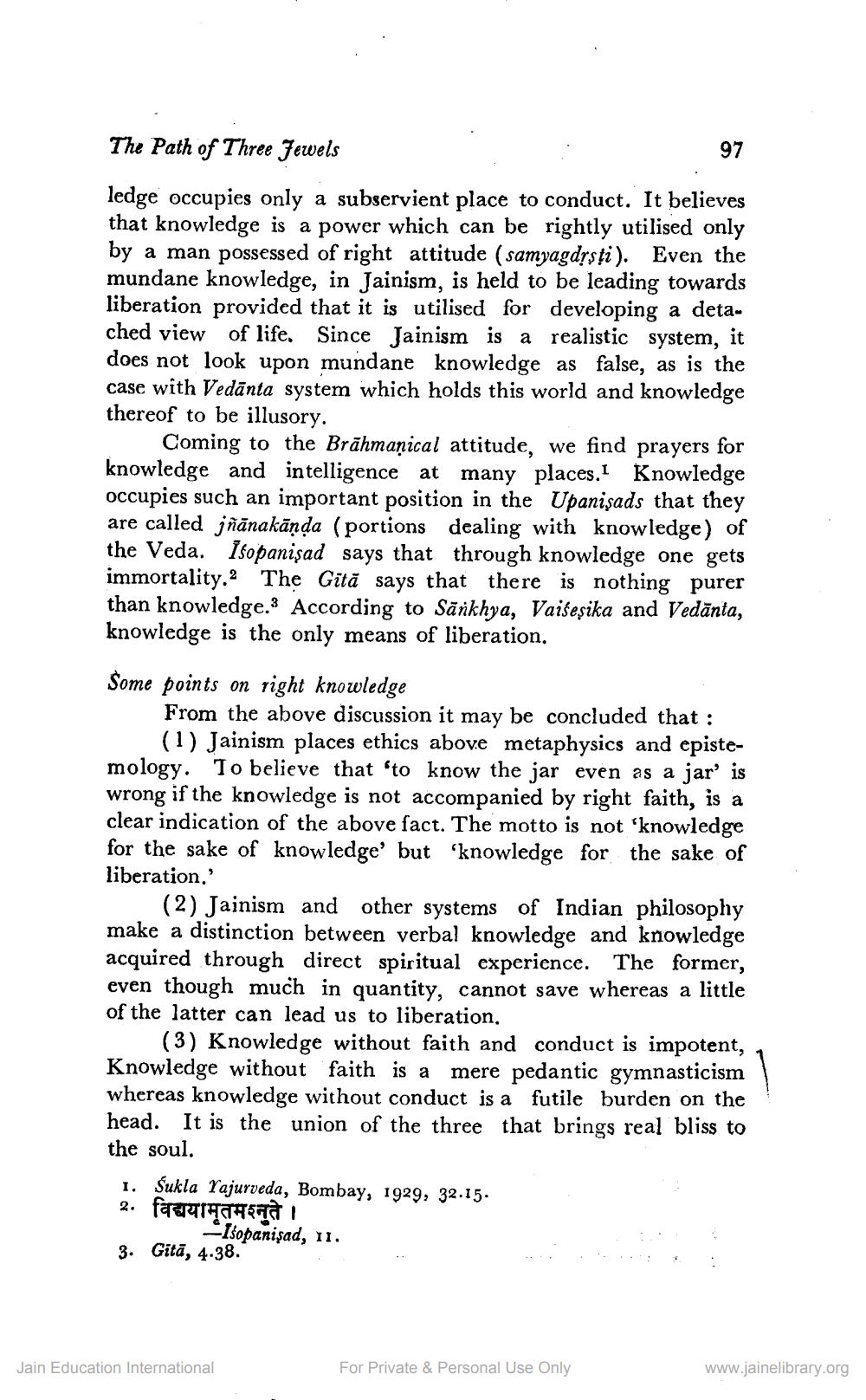________________
The Path of Three Jewels
ledge occupies only a subservient place to conduct. It believes that knowledge is a power which can be rightly utilised only by a man possessed of right attitude (samyagdrsti). Even the mundane knowledge, in Jainism, is held to be leading towards liberation provided that it is utilised for developing a detached view of life. Since Jainism is a realistic system, it does not look upon mundane knowledge as false, as is the case with Vedanta system which holds this world and knowledge thereof to be illusory.
Coming to the Brāhmaṇical attitude, we find prayers for knowledge and intelligence at many places. Knowledge occupies such an important position in the Upanisads that they are called jñānakāṇḍa (portions dealing with knowledge) of the Veda. Isopanisad says that through knowledge one gets immortality.2 The Gita says that there is nothing purer than knowledge. According to Sankhya, Vaisesika and Vedanta, knowledge is the only means of liberation.
Some points on right knowledge
From the above discussion it may be concluded that:
(1) Jainism places ethics above metaphysics and epistemology. To believe that 'to know the jar even as a jar' is wrong if the knowledge is not accompanied by right faith, is a clear indication of the above fact. The motto is not 'knowledge for the sake of knowledge' but 'knowledge for the sake of liberation.'
(2) Jainism and other systems of Indian philosophy make a distinction between verbal knowledge and knowledge acquired through direct spiritual experience. The former, even though much in quantity, cannot save whereas a little of the latter can lead us to liberation.
(3) Knowledge without faith and conduct is impotent, Knowledge without faith is a mere pedantic gymnasticism whereas knowledge without conduct is a futile burden on the head. It is the union of the three that brings real bliss to the soul.
I.
2.
97
Sukla Yajurveda, Bombay, 1929, 32.15. विद्ययामृतमश्नुते । -Isopanisad, 11.
3. Gitä, 4.38.
Jain Education International
For Private & Personal Use Only
www.jainelibrary.org




